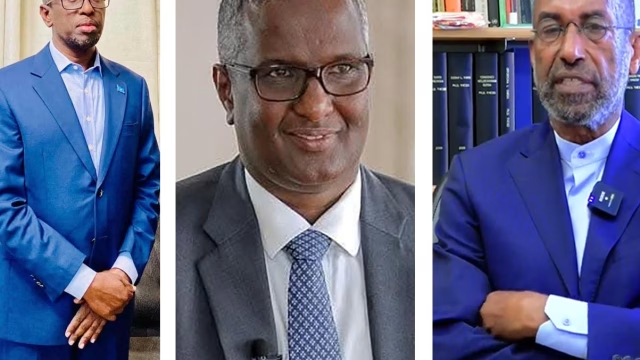In the last week, Kenya surprisingly seem to have heavily adopted a Machiavellian foreign relation that…

In the last week, Kenya surprisingly seem to have heavily adopted a Machiavellian foreign relation that a state touching once own should be considered as one to be subdued.
Kenya is currently embroiled in a bitter diplomatic fallout with the Republic of Somalia over maritime territorial border on the Indian Ocean, accusing Somalia of auctioning oil blocs to prospective bidders on a disputed territory.
Kenya went ahead recalling its ambassador for further consultation which was in order but erred in sending the Somalia ambassador to Kenya back to his home country – a hostile gesture used to demonstrate intent of a country to scale down diplomatic relations with the other.
That was not all, Kenya issued a strongly worded statement lacking the magnanimity of diplomacy and friendly relations, threatening to defend its territorial integrity at all cost saying it considers those involved directly and indirectly in the oil bloc auction on its borders as enemies of the State and adversaries of the Kenyan people.
More shocking, these harsh words depicting drums of war are coming out despite the fact that this territorial dispute is already before an international arbiter, the International Court of Justice.
In the same Machiavellian foreign relation script, Kenya seem to have also adopted the concept Nixon and Kissinger perfectly executed with China against Soviet Union that a distant state that borders the “enemy” should be considered a friend. Kenya is set to open a diplomatic office in Hargeisa the capital of break-away Somaliland – which Somalia has vehemently rejected its call for independence and international recognition, a move that undermines Republic of Somalia’s one Somalia policy.
It is not the first time that Kenya finds itself in a territorial dispute, it already has one with Uganda over Migingo island on Lake Victoria and South Sudan over the Elmi triangle but has chosen to use peaceful and diplomatic dispute resolution. So why has Kenya surprisingly chosen to go wildly combative and confrontational in the case of Somalia??
In 1954, the term “blowback” was first used by CIA in a report about the agency’s secret involvement the previous year in replacing Mohammed Mossadegh with Reza Shah Pahlavi as the leader of Iran. The word refers to the unintended consequences of a covert action that ultimately undercuts the effort’s intent – an eventuality that came to pass in Iran when hostility towards the Shah regime led to Ayatollah Khomeini’s revolution. To this day, the US is paying a steep price for its role in trying to manipulate Iran affairs more than five years ago.
It’s this kind of blowback price that awaits Kenya for courting hostilities with Somalia and failing to analyze the sensitivity needed to handle this territorial dispute.
In their book “Inside Al-Shabaab” Harun Maruf and Dan Joseph quote French analyst Roland Marchal that Ethiopia’s major blunder was the failure to analyze its historical tension with Somalia stemming from differences over territory, resources and regional power when it went into to stabilize Somalia in 2007.
Their presence was a provocation to locals who many believed were just scheming to take over the country playing into Islamist hands who saw an opportunity to plant seeds of suspicion and distrust in the locals by playing those fears and called on Somali people to fight forces that want to change the map of Somalia. Many Somalis even in the diaspora closed ranks with the Islamic militant making Al Shabaab a powerful militant movement.
Kenyan has its soldiers in Somalia and such aggression is likely to provoke emotions of local perceiving them as occupational forces, a blow back to stabilizing Somalia, stemming Islamic radical extremism and securing regional stability.
The long-term interest of Kenya lies in having the Republic Somalia as a friendly neighbour and at the same time act as one just as it relates with its other neighbours because history explicitly has it that it’s costly to be a hostile neighbour.


